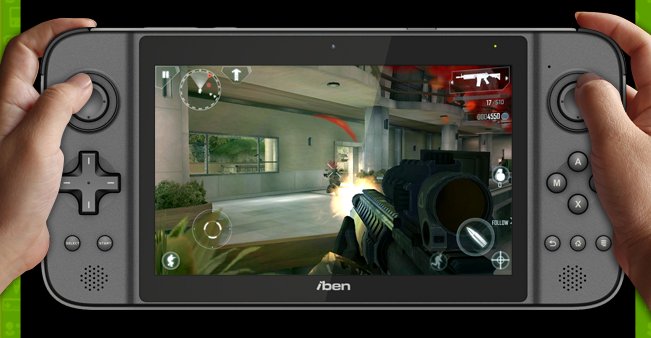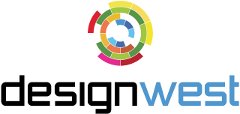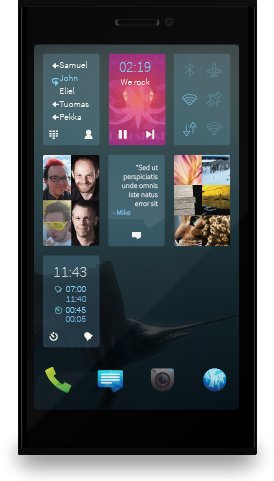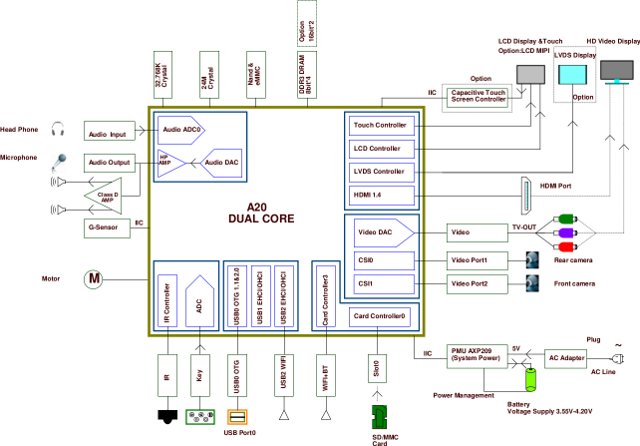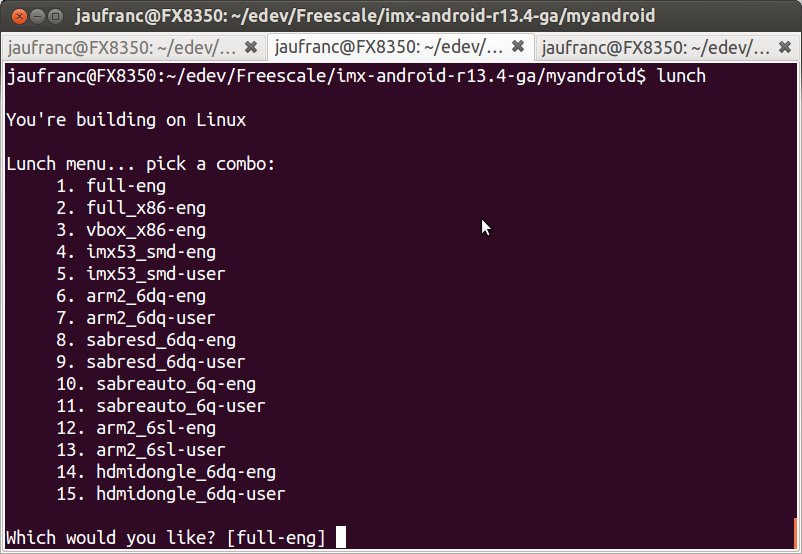Linaro 13.04 has just been released. It features Linux Kernel 3.9-rc7 and Android 4.2.2. A lot of work has been done on ARMv8 (Cortex A53) with further work on OpenEmbedded, more testing, and updates to the GCC toolchain. Calxeda EnergyCore server has been added to LAVA, Origen Quad now gets hardware video acceleration in Android Jelly Bean. Still more cleanup has been done on the kernel side with regards to Samsung and ST SoC, and a big.LITTLE porting guide is now available (linaro login required). Here are the highlights of this release: LAVA Prototype of a new publishing system is used to overcome performance problems with android-build.linaro.org. Calxeda EnergyCore support is merged in LAVA, and an isolated system has been set up for web benchmarking. Fedora support is merged in LAVA. A user can submit LAVA jobs using a Fedora pre-built image. Boot commands are untangled from LAVA dispatcher. They’re now […]
Allwinner Showcases A20, A31 and A31s Devices: Tablets, Phablets, Mini PCs, Projectors, Laptops, Development Boards…
Charbax is now at the China Sourcing Fair in Hong Kong, meeting and interviewing lots of Chinese companies. One of the companies I’ve been following is AllWinner because of their low-cost ARM Cortex processors, found in many Android devices, which somewhat support Linux. In the video below, we first learn they have shipped 1 million A31 in the last 4 months, A31s and A20 processors have been available since the end of March for phablets, and A20 price is supposed to be very close to A10. So products based on AllWinner A10 could be upgraded to AllWinner A20 for just a few dollars more as both SoC are (nearly) pin to pin compatible. By the way, if you’re interested in the Cubieboard, you may want to see this. We then go through lots of devices based on AllWinner SoC, albeit too fast to get many details, but the list may […]
Design West Summit – 23-25 April 2013
Design West 2013, previously known as the Embedded Systems Confertence, will take place later this month, on 23-25 April to be exact, at San Jose McEnery Convention Center in San Jose, California, US. The event will be divided into 22 tracks dealing with software development, hardware design, operating systems, security and more: Android Certificate Program – Two-day hands-on embedded android workshop. Black Hat Summit – The Black Hat Embedded Security Summit will provide electronics professionals with essential information and tools, as well as a forum for the discussion and evaluation of the latest solutions for securing their embedded systems. Training courses will focus on topics such as Network Security, Incident Response, Web Application Security, and Exploit Development. Connectivity and Networking – The Connectivity and Networking track educates design engineers on wired and wireless communications, spanning need-to-know topics from essentials of USB device development to antenna and RF system design. Debugging […]
Sailfish OS SDK Adds Support for Windows and Mac OS X
At the end of February, Sailfish OS SDK Alpha was released with support Linux 32- and 64-bit only. The latest version of Sailish OS SDK can also be installed in Windows and Mac OS X. If you’re developing in Linux, it’s just the same SDK as released in February. The SDK and quick start guide is available from Sailfishos.org, or you can click directly on the links before to download and install the SDK. Windows SDK installer – SailfishOSSDK-windows-offline.exe Mac OS X installer – SailfishOSSDK-mac-offline.dmg The SDK is still at the Alpha stage with several known issues, and probably a few more yet-to-be-known bugs. Jean-Luc Aufranc (CNXSoft)Jean-Luc started CNX Software in 2010 as a part-time endeavor, before quitting his job as a software engineering manager, and starting to write daily news, and reviews full time later in 2011. www.cnx-software.com
AllWinner A20 Linux Source Code, EVB Schematics and Product Brief
Hardware based on AllWinner A20 such as Cloudsto Media PC PRO DRIVEDOCK, should start to be available soon, and resources for developers have been slowly released (or leaked) to the community. AllWinner A20 Source Code The source code for AllWinner A20 and A31 has been released to sunxi-linux a while back, and they have started to clean up the code before hardware becomes available. The code apparently hasn’t made it to sunxi-linux github account just yet, but Linux for A20 has been imported into github at https://github.com/amery/linux-allwinner/tree/import/lichee-3.3/a20-dev. AllWinner A20 is known as sun7i in the code. AllWinner A20 Evaluation Board Schematics and Product Brief Olimex received A20 EVB schematics and product brief from AllWinner earlier this week, and as usual, they promptly uploaded those documents to their github account. The 3-page product brief does not bring anything new, and the data sheet does not seem to be available right now. […]
Tizen 2.0 SDK and Source Code (Magnolia) Release
Tizen developers have just announced Tizen 2.0 source code and SDK release. This release includes many new features and improvements over Tizen 1.0 released in April. The highlights of this release include: Enhanced Web framework that provides state-of-the-art HTML5/W3C API support Web UI framework, including full-screen and multi-window support Additional Tizen device APIs, such as Bluetooth and NFC support, and access to the device’s calendar, call history, and messaging subsystems Web Runtime framework supporting new configuration elements for specifying the required features and privileges, and providing the basic runtime environment for NPRuntime plugins Native framework supporting full-featured application development and providing a variety of features such as background applications, IP Push, and TTS (Text-To-Speech) Core and native reference applications including Calendar, Contacts, Gallery, Phone, Settings, and Video Player Enhanced Web IDE providing WYSIWYG design environment, Chrome-based JavaScript inspector, and JavaScript log viewer Native IDE providing a project wizard, WYSIWYG design […]
Developer Community for Freescale i.MX6 HDMI Dongles
Last week, I explained how to build U-boot, the kernel, and Android for Freescale i.MX6 HDMI dongle reference platform. Since them, there has been a bit more activity, with Richtechie releasing source code to some ARMTvTech members. However, this source code is very similar to the one released by Freescale, and misses some part present in the kernel config on GK802 such as CONFIG_MACH_MX6Q_RICHTECHIE, and the company clearly does not comply with the GPL. Let’s forget that for now, as Jasbir (who is also behind the Hackberry board) has managed to build and boot the kernel on his mini PC. There’s still more work to do, but at least we have a based to work on. In the meantime, I’ve noticed rz2k, an other developer, was also giving it a try on #arm-netbook Freenode IRC channel, so we decided to setup a few things to facilitate development and communication between developers. […]
U-boot, Linux Kernel, and Android Patches for Freescale i.MX6 HDMI TV Dongles
We can now get some quad core Android mini PCs (e.g. Hi802, GK802) featuring Freescale i.MX6Q processor, Freescale has released full documentation and source code its development platforms, Hi802 / GK802 HDMI TV dongles are easily hackable, and there’s even an Ubuntu image for the devices. So it looks pretty good ,right? Well almost.. there are some patches and config for GK802 that have not been released by Richtechie, so we can’t modify the bootloader and Linux kernel. But this may change, as ARMTvTech forum user hste noticed some Freescale i.MX6 HDMI dongle patches om IMX Community website. Even though I’m not sure those are fully compatible with Hi802 / GK802, this could be a starting point. Today, I’ll provide the instructions to build u-boot, the linux kernel and Android ICS with those patches in a machine running Linux 12.04 64-bit. Patch Sets Descriptions There are two set of patches that […]



